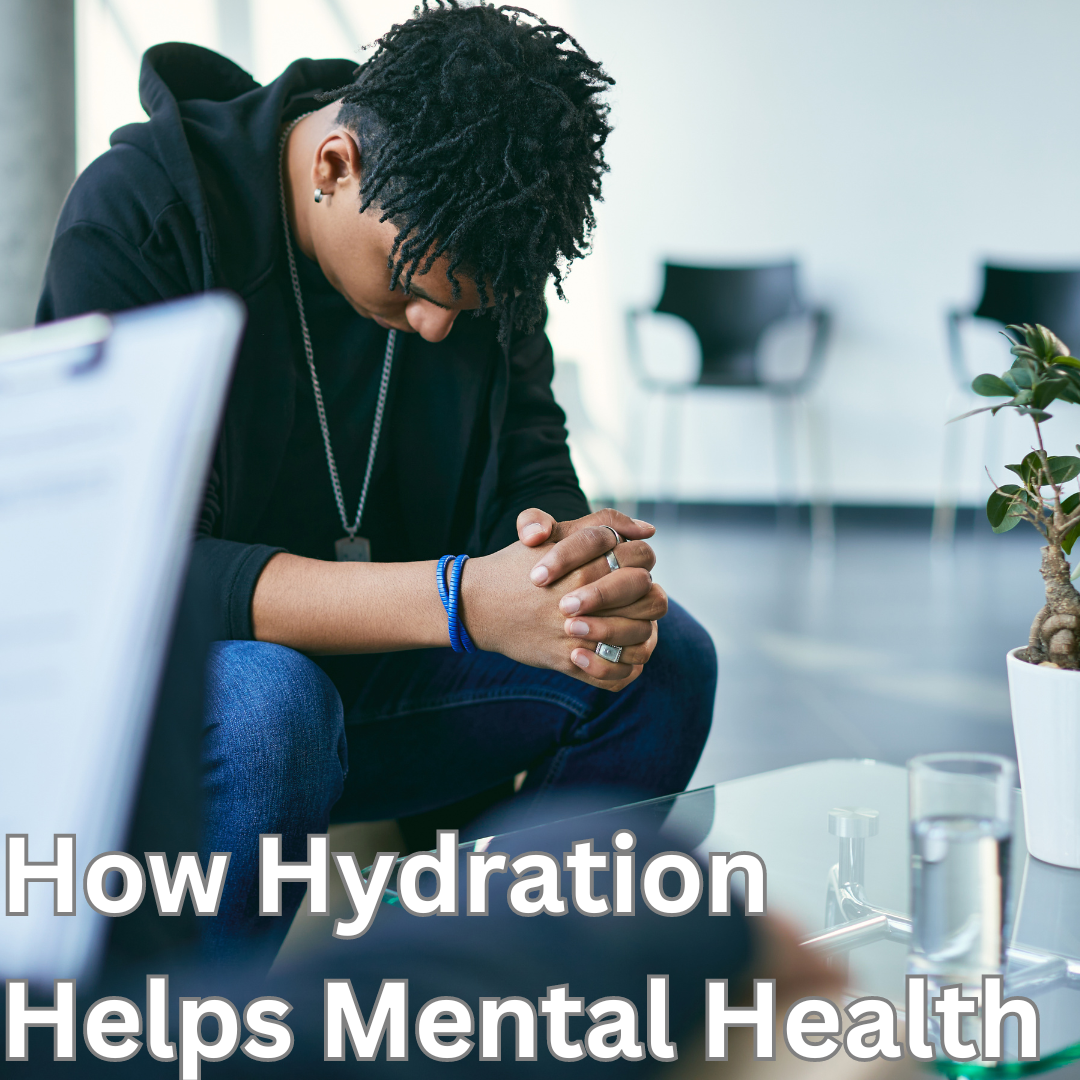Introduction: In the quest for mental well-being, we often focus on various aspects of our lives, such as mindfulness, exercise, and diet. However, one crucial yet often overlooked element is hydration. The relationship between hydration and mental health is profound, with emerging evidence suggesting that staying adequately hydrated can have transformative effects on our cognitive functions and emotional well-being. In this blog, we explore the compelling reasons why hydration is a key player in nurturing a healthy mind.
- Brain Function and Hydration: The human brain is approximately 75% water, emphasizing the critical role hydration plays in maintaining optimal cognitive function. Dehydration can lead to difficulties in concentration, memory lapses, and a decline in overall mental sharpness. Regular intake of water ensures that your brain is adequately fueled for the mental challenges of the day.
- Mood Regulation: Hydration is closely linked to mood regulation. Even mild dehydration has been associated with increased feelings of anxiety, irritability, and a general decline in mood. Drinking enough water helps stabilize mood by supporting the balance of neurotransmitters, such as serotonin, which plays a crucial role in promoting feelings of well-being and happiness.
- Cognitive Performance: Research indicates that dehydration can impair various aspects of cognitive performance, including attention, reaction time, and decision-making. By staying hydrated, you enhance your ability to think clearly, process information efficiently, and perform cognitive tasks with greater ease.
- Stress Reduction: Dehydration can amplify the body’s stress response, making it more challenging to cope with daily pressures. Proper hydration helps regulate stress hormones, promoting a more balanced and adaptive response to stressors. By keeping stress levels in check, you create a healthier mental environment for sustained well-being.
- Energy and Alertness: Fatigue and low energy levels often go hand in hand with dehydration. Depriving your body of adequate water can lead to feelings of tiredness and sluggishness. Hydration helps maintain optimal energy levels, keeping you alert and focused throughout the day.
- Improved Sleep Quality: Hydration plays a role in promoting healthy sleep patterns. Dehydration can contribute to sleep disturbances and restless nights. By maintaining proper hydration, you support your body’s natural sleep-wake cycle, facilitating more restful and rejuvenating sleep.
- Enhanced Emotional Resilience: Adequate hydration contributes to emotional resilience, helping individuals cope with life’s challenges more effectively. When the body is well-hydrated, it can better adapt to stressors, reducing the likelihood of emotional volatility and promoting a more balanced emotional state.
- Developing Hydration Habits: Cultivating hydration habits is a fundamental step in supporting mental health. Carry a reusable water bottle, set reminders to drink water throughout the day, and incorporate hydrating foods like fruits and vegetables into your diet. Small, consistent efforts can lead to significant improvements in both physical and mental well-being.
Ways to Improve Your Hydration:
- Set a Hydration Schedule: Establishing a routine for hydration can be a game-changer. Set specific times throughout the day to drink water, and consider incorporating it into existing habits, such as having a glass before each meal or drinking water during breaks at work. Setting reminders on your phone or using hydration apps can help you stay on track and make hydration a consistent part of your daily routine.
- Practice Mindful Hydration: Cultivate mindfulness around your hydration habits by paying attention to your body’s signals and needs. Instead of mindlessly reaching for a drink, take a moment to assess your thirst levels and drink accordingly. Practice mindful drinking by savoring each sip and tuning in to how your body responds to hydration. This intentional approach can help you develop a deeper awareness of your hydration needs and promote a more balanced fluid intake throughout the day.
- Making Hydration Convenient: Creating a convenient and accessible environment for hydration is crucial for maintaining a consistent and healthy water intake. When water is readily available and within arm’s reach, it eliminates the barriers of inconvenience and encourages regular sipping throughout the day. Placing a water dispenser on your bed or desk and carrying a reusable bottle in your bag when you are on the move ensures that hydration becomes a seamless part of your routine. Convenience plays a pivotal role in establishing hydration as a habit, making it more likely for individuals to reach for a drink without hesitation, ultimately contributing to improved overall well-being.
Conclusion: In the pursuit of mental health, hydration stands as a simple yet powerful ally. By recognizing the profound impact that water intake has on cognitive function, mood regulation, stress management, and overall mental well-being, we can prioritize hydration as an essential component of our self-care routine. Let us raise a glass to a well-hydrated mind and a flourishing mental landscape. Cheers to mental wellness!

